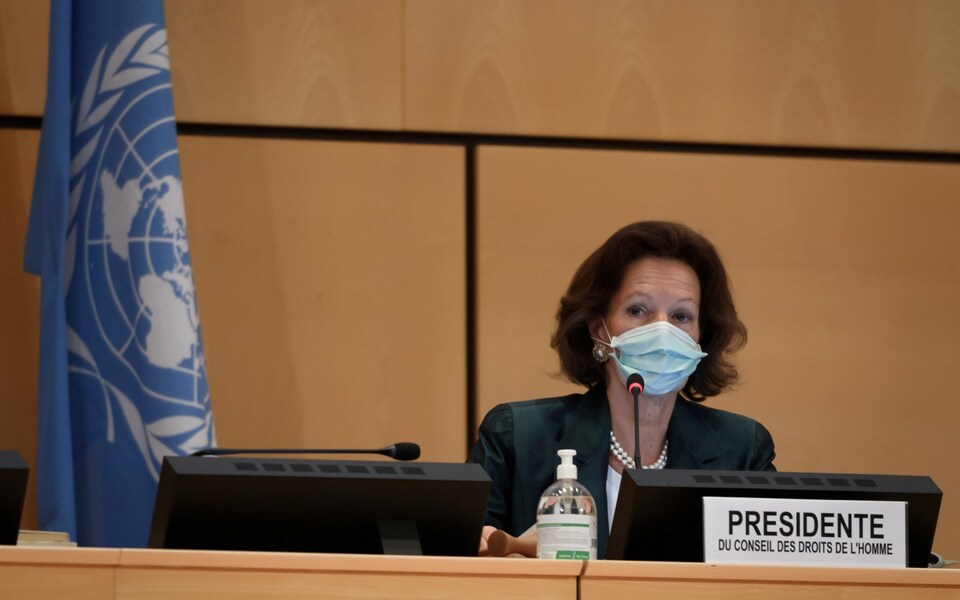The UN's top rights body agreed to a request from African countries to urgently debate racism and police brutality this week following unrest in the US and beyond over George Floyd's death.
As the 43rd session of the UN Human Rights Council resumed after breaking in March over the coronavirus pandemic, council president Elisabeth Tichy-Fisslberger proposed to hold the debate on Wednesday.
"I can see no objections. It is therefore so decided," she said.
It is only the fifth time in the council's 14-year history that it has agreed to hold an "urgent debate", which is a special debate agreed upon within a regular session of the council.
Burkina Faso's ambassador to the UN in Geneva last Friday sent Tichy-Fisslberger a letter on behalf of Africa's 54 countries calling for an urgent debate on "racially inspired human rights violations, police brutality against people of African descent and the violence against the peaceful protests that call for these injustices to stop."
That call came after Floyd's family, along with the families of other victims of police violence and over 600 NGOs this week called on the council to urgently address systemic racism and police impunity in the US.
Friday's letter pointed to the case of George Floyd, a 46-year-old black man who died in police custody in Minneapolis on May 25 after a white officer, who has since been charged with murder, pressed his knee on his neck for nearly nine minutes.
His death, which was caught on video and has sparked massive protests across the United States and around the world, "is unfortunately not an isolated incident."
"Many other cases of persons of African descent (have) faced the same fate because of their origin and police violence," Burkina Faso Ambassador Dieudonne Desire Sougouri told the council Monday.
While Friday's letter called for a debate on racism around the globe, it in particular highlighted the situation in the United States.
"The protests the world is witnessing are a rejection of the fundamental racial inequality and discrimination that characterise life in the United States for black people, and other people of colour," it said.
Addressing the 47 members of the rights council, Sougouri insisted that "following the unanimous and general indignation raised by this situation, it would be inconceivable for the Human Rights Council not to address this current situation."
A number of countries had been expected to address Floyd's killing and concerns about police violence and racism in the United States during the resumed 43rd council session even without a special debate.
But since the deadline for tabling fresh resolutions during this session expired back in March, the extraordinary debate offers the only opportunity to propose a fresh resolution for concrete actions.
The first ever such urgent debate at the council came in 2010 to address a deadly Israeli raid on a flotilla bringing aid to Gaza. Urgent debates were also held in 2013, 2014 and 2018 on the situation in war-ravaged Syria.
In the past, the council has been characterised as weak and hypocritical when it comes to handling human rights abuses. Former US ambassador to the UN Nikki Haley said in 2018 that “for too long, the Human Rights Council has been a protector of human rights abusers.” The US formally withdrew its membership from the council that year, citing “chronic bias against Israel."
Source: Media



























